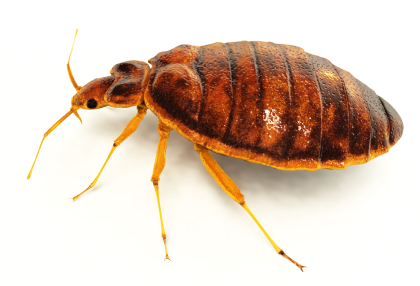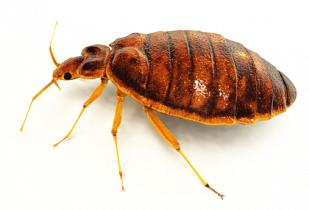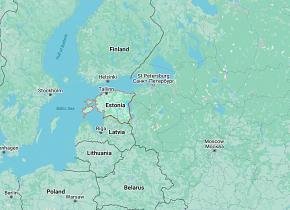Toronto: Bed Bugs go on rise
Here is a very informative post for those of us who love Toronto Real Estate and have some concerns about the increase of Bed Bugs in Toronto. I am happy to add your guest posts especially if they touch on any topic that is of interest to Toronto Real Estate Junkies. I hope you enjoy this guest post on Bed-Bugs…not a favourite topic but good to know about…
“Sleep tight. Don’t let the bed bugs bite.†This is an old saying and most people don’t know its origins. The “sleep tight†part comes from the way beds used to be constructed, with ropes under the mattresses instead of slats. You wanted to “sleep tight†so your mattress wouldn’t plunge to the floor with you atop it.
Don’t let the bed bugs bite…unfortunately, in Toronto, we’re becoming very familiar with bed bugs.
How did this all start, and is it really as bad as you’ve been led to believe?
Bed bugs are not a new pest. In England in the 1850s, 75% of homes were infested with bed bugs, and chances are that Toronto had a similar infestation rate, although there is no data to confirm this.
Bed bugs were largely eradicated during the 1940s and 1950s, through a combination of good pesticides and determination by governments. However, in the 1970s, DDT use was restricted in Canada. While some sources offer this as a reason for the increase in bed bugs in Toronto, others point to evidence that bed bugs were becoming DDT-resistant decades before the restrictions.
British officials began to see an increase in bed bugs as early as 1995, but Toronto saw few bed bug complaints until 2003, when 46 bed bug complaints were made, and experts warned of an epidemic of bed bugs.
In 2005 the number of requests was up to 197. Although that number of complaints dropped to 147 in 2006, 2007 saw Councillor Paula Fletcher declaring that bed bugs should be declared a “health hazard†and the Board of Health asking the Medical Officer of Health to study and prepare a report on the bed bug situation.
By February of 2008, the Board of Health was recommending a bed bug action committee, which was renamed the Toronto Bed Bug Project in April of that year. The bed bug project concluded that some progress had been made, but a coordinated response was needed.
A pilot project targeted five apartment projects for eradication efforts, but over the next several years, bed bugs in Toronto continued to be a problem. The Toronto Star’s 2009 bedbug map, published in March 2010, showed that very few areas of the city were free from bed bugs.
By 2010 bed bugs were reported in the Scotiabank Theatre, hardly the type of place one expects bed bugs.
But where should one expect bed bugs? Having seen the history of the bed bug in Toronto, and seeing that, yes, it really is that bad let’s look for a moment at where bed bugs breed.
Many people believe that bed bugs are “caused†by filth, but this is not true. Bed bugs do not feed on dirt, nor do they live in dirt. Bed bugs feed on blood, either human or animal, and as long as they find blood to feed on, they’ll live anywhere—even in immaculate homes, even in movie theatres if they’re carried there on people’s clothing or belongings.
Poverty, also seen as a cause of bed bugs, has nothing to do with it, either; again bed bugs will live anywhere they can feed.
Once a bed bug enters your home, usually on clothing or belongings, you will have a bed bug problem. If you’re unfortunate enough to bring in a female bed bug, she may produce hundreds of offspring from eggs she’s already carrying.
Dirt may not benefit bed bugs, clutter does, because it gives them more places to hide and multiply, and makes them harder to get rid of.
Why do apartments seem to get bed bugs more readily than other dwellings? Apartment buildings have higher traffic than single-family homes. The more people going through an area, the more likelihood of bed bug transfer.
So what can you do? Honestly, the only thing you can do about bed bugs is bring in a licensed pest control Toronto exterminator. All the efforts you might make on your own, including cleaning and exterminating the bugs you can see, will not completely eradicate your bed bug problem.
As you can see, bed bugs are neither a new problem nor a minor one, so be diligent.
About the writer:
Paul Terhart is the owner of Environmental Pest Control, a company that has been providing Toronto pest control services since 1988 – EPC’s Toronto bed bugs treatment program will completely eliminate any bed bug infestation.
Internet site reference: http://torontoism.com/2012/08/24/guest-post-bed-bugs-in-toronto-does-our-city-have-an-infestation-problem/
Comments
There are 0 comments on this post














